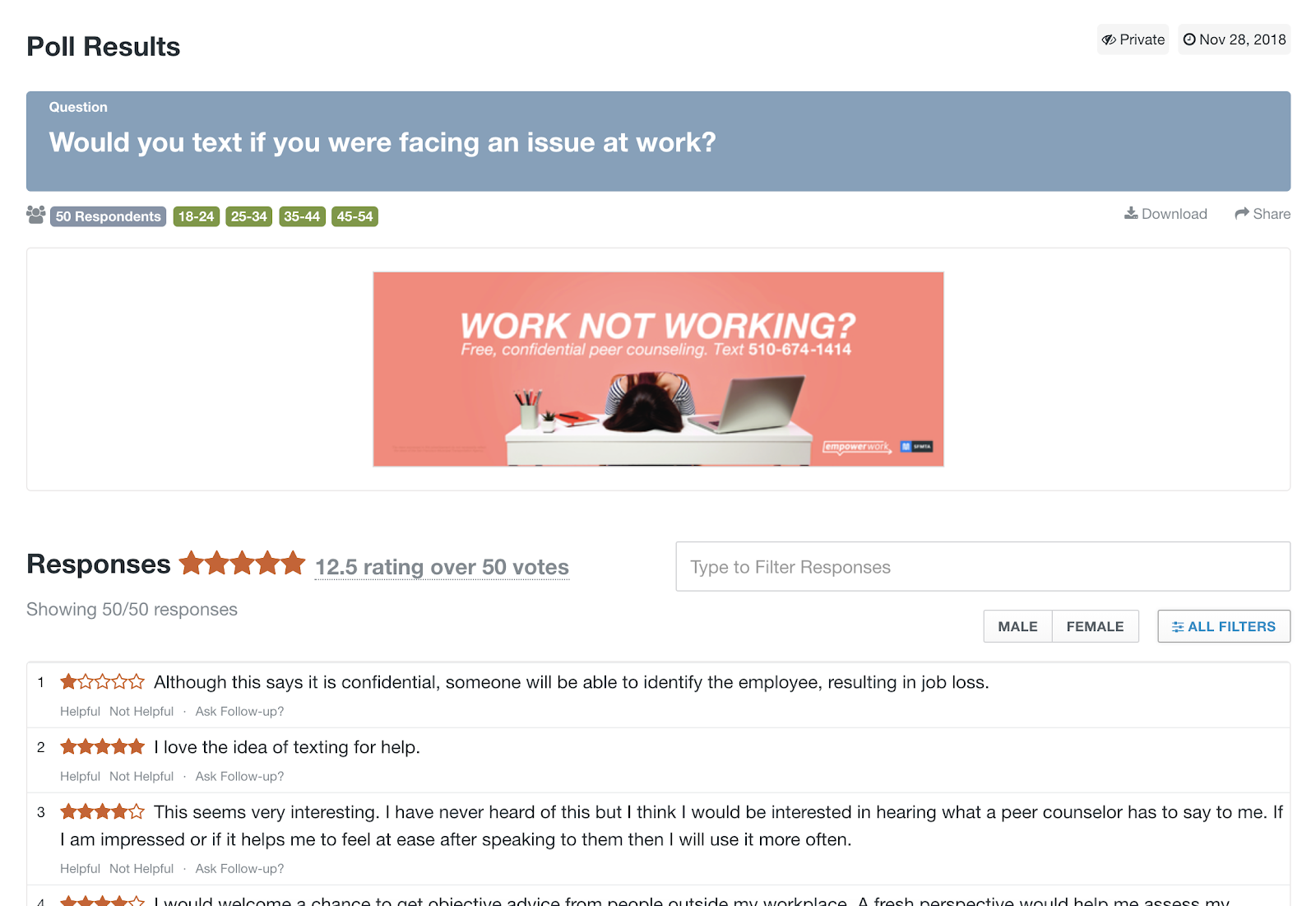In today’s e-commerce landscape, consumers are constantly bombarded by messages and advertisements — as many as 10,000 ads in the course of a single day, by some estimates.
With that level of noise, you need to know how to speak to your target audience. The way you communicate, whether for a product launch or a rebranding campaign, is key to building relationships and turning potential customers into brand loyalists.
But how do you know if you’ve crafted the right messaging? Does it prompt your audience to take the next step: click to the next page, add that product to the cart, or pick up the phone to learn more?
Chances are, you’re not entirely sure. That’s where message testing comes in.
What is message testing?
Message testing is a form of testing that uncovers what customers and potential customers think and how they respond to messaging about a product or brand.
Message testing can range from straightforward to complex, depending on what you want to get out of it.
For example, you can message test on social media platforms using A/B testing. This approach is pretty straightforward. Create two (or more) different versions of a particular message via a social media post or advertisement. Put them in front of your target audience for a certain period of time. Then, monitor the analytics to see which of those posts or ads performs better with your users.
More in-depth message testing might include the use of interviews or focus groups that reflect the customers you’re trying to reach.
Say you want to test the product description or marketing copy for a pair of high-quality running shoes. You would present the person or group with various iterations of your copy and ask them, either one-on-one or as the group, for their reactions.
What is a product concept?
A product concept is your idea for the product or service you want to launch. Product concept and messaging are related. You first have to evaluate and validate your concept before you craft the messaging. Will consumers use your product? How much are they willing to pay for it?
Like message testing, concept testing can be done using split tests, surveys, and focus groups.
As a business owner, you invest a lot of time, money, and resources into developing your product and brand. By testing your product concept, you can avoid costly mistakes and increase the likelihood of a successful launch.
How important is message testing?
Message testing can be the difference between capturing market share for a unique product that you and maybe one or two other companies sell and losing it to one, or both, of your competitors.
By collecting insights from real people who are actively using your product or researching a product like it to buy, you’ll understand the messaging that best resonates with them. This will enable you to zero in on the needs of your audience and fine-tune your marketing messages accordingly.
Businesses sometimes think too broadly about the products they’re trying to market. As a result, their messaging may strike the wrong tone, confusing consumers or turning them off altogether.
Message testing forces you to focus on the needs of your audience and create messaging that will set you apart from your competition.
Market positioning vs. messaging
Messaging and market positioning are not the same thing, but they go hand in hand.
Market positioning is how you establish your product or service with your target audience.
For example, if you’re a luxury brand that sells watches, you want customers to think of your watches as just that: high quality, a status symbol. You might position the watches as luxury through pricing, celebrity spokespeople, and retail partners.
Messaging is the content — taglines, ad copy, videos featuring those famous spokespeople, social media posts — that supports your market positioning efforts as a luxury brand.
And, of course, message testing allows you to gauge whether your messaging accurately and effectively communicates your market position.
How to use PickFu for message testing
PickFu is an online surveying platform that businesses use to gather unbiased feedback from a readymade panel of U.S.-based respondents.
Test a range of messages on PickFu, from your brand name and logo to ad campaigns and landing page copy. PickFu’s audience targeting traits enable you to reach the same type of customers that your business wants to attract: baby boomers in the Midwest, mobile game-playing millennials, and everyone in between.
A 50-person PickFu poll starts at $50. You’ll get results back that same day, which means you can get to work immediately refining your messaging.
Empower Work, a San Francisco nonprofit, turned to PickFu for message testing before launching its first public service announcement campaign.
The organization needed feedback on an advertisement that would appear on buses and bus shelters. It uploaded the ad creative on PickFu and asked 50 people between ages 18 and 54 for their reaction.
The results came back in just 31 minutes.
“Since the imagery seemed to resonate, we kept it as-is. However, after reading through the reactions, we adjusted the copy. Rather than focus on usage (“Free, confidential peer counseling”), we focused on hurdles (“Navigate tough work issues with free, confidential peer counseling”),” an Empower Work representative explained in this blog post.
“As we test more concepts in the future — from ads to landing pages — we’ll continue using survey tools to ensure we’re listening to and resonating with the community we serve,” she wrote.
Read more in this article on copy testing. Curious about the people who answer PickFu polls? Meet them here.






